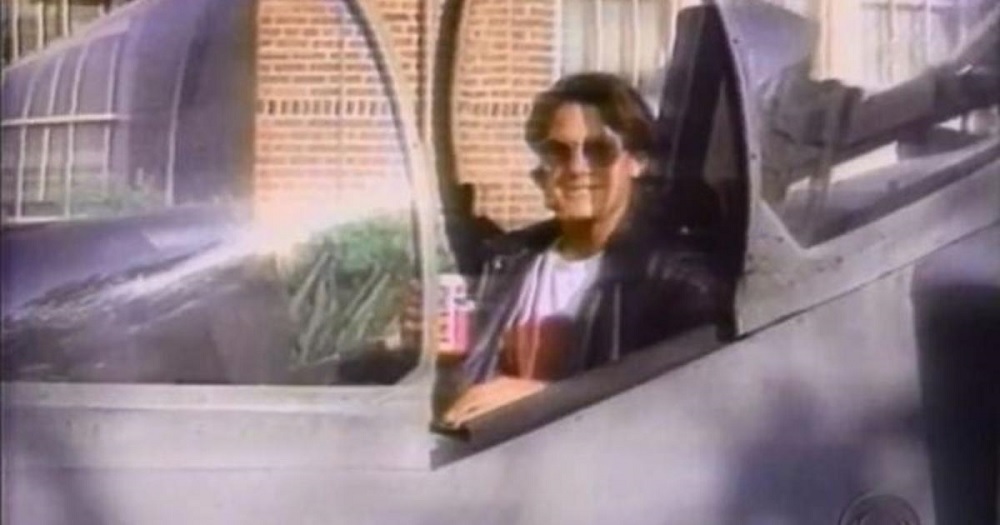“People say, ‘Well didn’t you want a t-shirt?’ and I say, well when there’s a Harrier out there for 7 million Pepsi points, why not aim your sights a little higher,” John Leonard.
In the mid-90s, one of the Pepsi-Colan commercials sparked controversy while the company was airing its Pepsi Stuff promotional campaign.
According to CBS, the campaign was simple: you could collect points from Pepsi labels by buying Pepsi products. Once you collected points, you could claim prizes like t-shirts, sunglasses, or – for 7 million points – a Harrier Jet.
“Sure beats the bus,” says the actor in the commercial, while landing on campus in a computer-animated Harrier jump jet. That scene would later prove to be key in sorting the ensuing legal debacle.
Pepsi’s spot caught the eye of a 21-year-old business student, John Leonard. He was only interested in one prize.
“People say, ‘well didn’t you want ant-shirt?’ and I say, well when there’s a Harrier out there for 7 million Pepsi points why not aim your sights a little higher,” said Leonard.
Leonard noticed some fine print. In place of labels, consumers could buy Pepsi points for ten cents each. He did the math and quickly figured out that it’d take him $700,000 to buy the Pepsi points he needed for the Harrier Jet. Then Leonard hit the phones and convinced five well-off investors to give him $700,000.
He sent Pepsi 15 labels and a check and waited for his jet.

But the Harrier never came. Pepsi said the ad was just a joke.
“Tens of millions of Americans, and people around the world, saw the spot, got the joke, and laughed,” said John Harris of Pepsi-Cola. “Mr. Leonard saw the spot, hired business advisers and lawyers, and decided to take legal action.”
After Pepsi went to court asking that Leonard’s claim be declared frivolous, he filed his own lawsuit, demanding the Harrier.
“People point out that this Pepsi generation they’re trying to sell to is me,” said Leonard.
“Someone who’s taking advantage of the legal system doesn’t really typify the Pepsi generation,” countered Harris.
So the question became: Was John Leonardnamong the best and brightest of the Pepsi generation, or was he just a nuisance? BBC correspondent John Blackstone posed the question to several folks on the street who seemed to all support Leonard.
“I think he should get the jet,” said one man.
“Well, if he drank that much Pepsi, then he probably should,” said a young boy.
“Maybe he is goofy, but I mean, they are making those claims, if they can’t back them up then they shouldn’t be putting them on air,” said another man.
Advertising executive David Verklin said that a customer like Leonard should be celebrated, not sued.
“You have a guy here who’s done something pretty clever,” said Verklin. “I’d give him a tour across the country in a Harrier jet. I’d turn it into a TV commercial.”
Pepsi did no such thing. Beyond its legal action, it updated its commercial by raising the number of points needed for the Harrier from 7 million to 700 million.
In the end, Leonard’s lawsuit fizzled out. A court granted a summary judgment in favor of Pepsi and ruled that “no objective person could reasonably have concluded that the commercial offered consumers a Harrier Jet.”
The court also added this gem of a reason in its dismissal of the case: “The callow youth featured in the commercial is a highly improbable pilot, one who could barely be trusted with the keys to his parent’s car, much less the prized aircraft of the United States Marine Corps.”
And that’s the way it was on Thursday, Aug. 8, 1996.
The following clip shows the infamous Pepsi commercial where they asked for 7,000,000 Pepsi Points for a Harrier jet.

